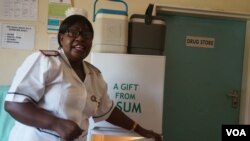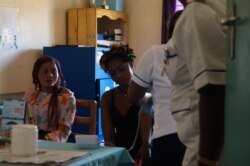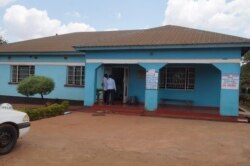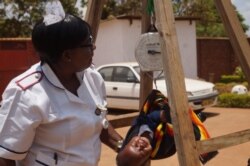The founder of a Malawian maternity clinic for poor women says it has set a record – safely delivering more than 8,000 babies. For her efforts improving access to safe childbirth, Charity Salima has even won a prestigious British award and honorary title.
Grace Chakudza gave birth in November to a healthy baby boy – her fourth child - at Achikondi Community Clinic. It opened in 2008 to help poor women safely give birth.
Since then the clinic has performed more than 8,800 successful deliveries, without the loss of mother or child, according to its founder.
That's a record number in Malawi, where the United Nations Children's Fund says the average mortality rate per 1,000 births is 22 deaths for babies and six for mothers.
Chakudza appreciates the care she got from the clinic.
She says "there is a big difference. There is congestion in public hospitals. Women give birth on the floor. And, sometimes one nurse is responsible for three pregnant mothers. This compromises the health of mothers and children. But here, I received good treatment,” Chakudza said.
The number of successful deliveries reported by the clinic, means it beats not only the global average of 17 newborn deaths per thousand births, but also the average of rich nations.
Britain this year gave clinic founder Charity Salima the Commonwealth Points of Light Award, calling her Malawi’s Florence Nightingale, the English founder of modern nursing.
Salima credits the way the clinic handles medical emergencies.
“All that success has come in because we can refer whenever there is a complication as soon as possible. Early detection of any abnormality and any referral - that is what has made us to be successful,” Salima said.
Services in the clinic are free-of-charge. The facility was built with donations from Scotland and the Norwegian Nurses Organization.
The U.S.-based charity Freedom from Fistula Foundation, which helps treat childbirth injuries, funds the clinic.
Lita Kaunda hails from the community at Area 23, where the clinic is situated. She says "before this clinic, many pregnant mothers were giving birth on their way to the hospital because of the distance they were traveling.”
Despite its good reputation, Salima says the clinic does have challenges.
“Sometimes we lack resources. It could be financial resources; we don’t have many resources. We also want if this building could have solar electricity because sometimes electricity is on and off.”
Salima hopes the clinic will get additional support and do even more to reduce Malawi’s newborn and maternal deaths.



